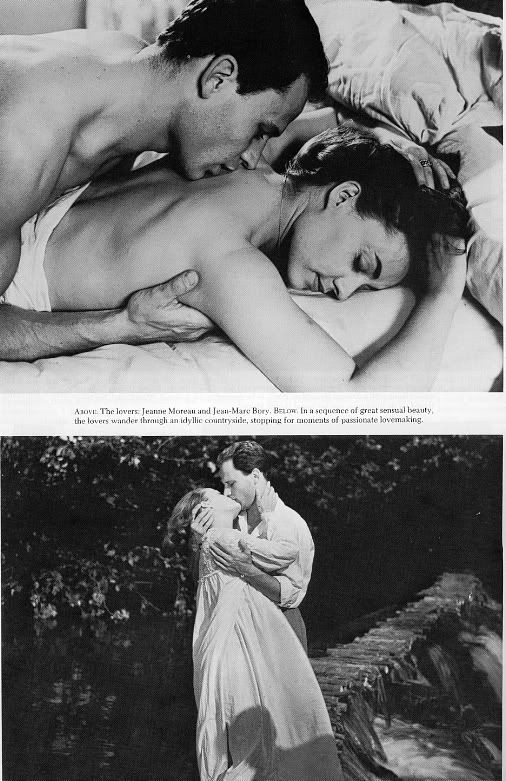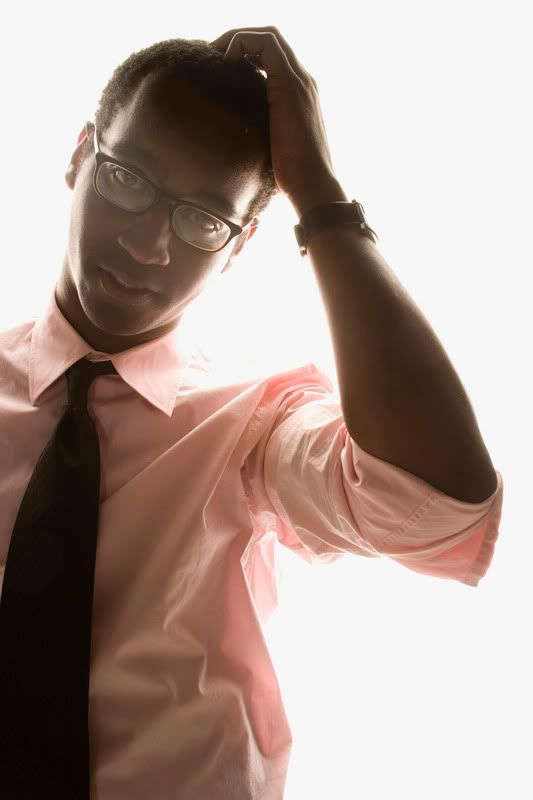
No one does bored bourgeois like Jeanne Moreau. Monica Vitti comes close, but it was Vitti as the seductress and Moreau as the wife with the empty marriage when they were paired together in Michelangelo Antonioni's ode to the beautiful and the damned, "La Notte." Moreau's steely reserve is held so intensely in those eyes that are always in search of something, someone, or some place other than her current state of ennui and frustration. That restless quest for something to take her away from the meaningless appearances of the thoroughbred set comes alive in moments that are as hot as the spark of a firework explosion in Louis Malle's "The Lovers" (1958). Moreau crafts another unforgettable performance as the unhappily married wife of a newspaper editor (Alain Cuny) who departs for Paris at any chance she can get to carry on her unfulfilling affair with her polo-playing lover (José Luis de Villalonga) and gab abut the details with her best friend (Judith Magre). It's not until the third act when the film really gets into surprising and complex territory when Moreau finds herself attracted to a new, random stranger (Jean-Marc Bory) she meets on the highway when her car unexpectedly breaks down. He gives her a ride to her palatial country estate where she's hosting the lover and friend for the weekend, per the encouragement of her not-so ignorant husband. A house full of lovers, friends, husbands, and wives sets the stage for the perfectly executed and Brahms-infused melodrama.
The film's many layers are rooted on the character of Jeanne played by Moreau. It's an interesting decision because Moreau is wealthy without shame, achingly beautiful, has an envious social life, and cheats on her husband. She should be villified or punished , but the film is more interested her self-discovery, not judging or condemning her, and the audience does the same. Moreau is an emotional cocktail of resentment, curiosity, sexual fire, desperation, and desire, all of which Moreau controls very tightly until her character begins to take a fancy to the new stranger in the house. A tryst in the middle of the night with this stranger sets the action into an entirely different direction for the rest of the film and we can only be so glad with how Moreau reacts. She becomes more loose, natural, and impetuous, qualities she never knew existed. Watching her floating down a creek in a small boat with her new lover is pure poetry. They stay up all night making love while the husband and other lover are asleep in the same house. Moreau makes on-screen love in with such singularity and convincing vulnerability without being theatrical or improbable, a rare combination. She looks like she's not acting. Maybe that's great acting, but I found myself feeling like a true voyeur when she orgasms with such fury while clasping to the free hand of her lover. It's the earliest film I can think of where the image of a woman deriving honest sexual pleasure had such profound connotations. The film pre-dates "women's liberation" and offers a more in-depth filled portrait of a woman in spite of the Madonna/whore dichotomy that existed in cinema at that time and still persists today.
Where will this love affair, if that's what you want to call it, go? Malle doesn't want to spoil it for us, and neither does Moreau in that unreadable look on her face at the end. Questions of sexual power, monogamy, and class come across so clear in Moreau's provocative performance. The film as a whole is fantastic, but it's Moreau that you, or at least I, can't take your eyes off of.
"The Lovers" is available on DVD now.
Thursday, July 10, 2008
performance: a woman under the influence
Posted by
w.
at
4:48 PM
![]()
![]()
Labels: dvds, film, women i love
Subscribe to:
Post Comments (Atom)



No comments:
Post a Comment